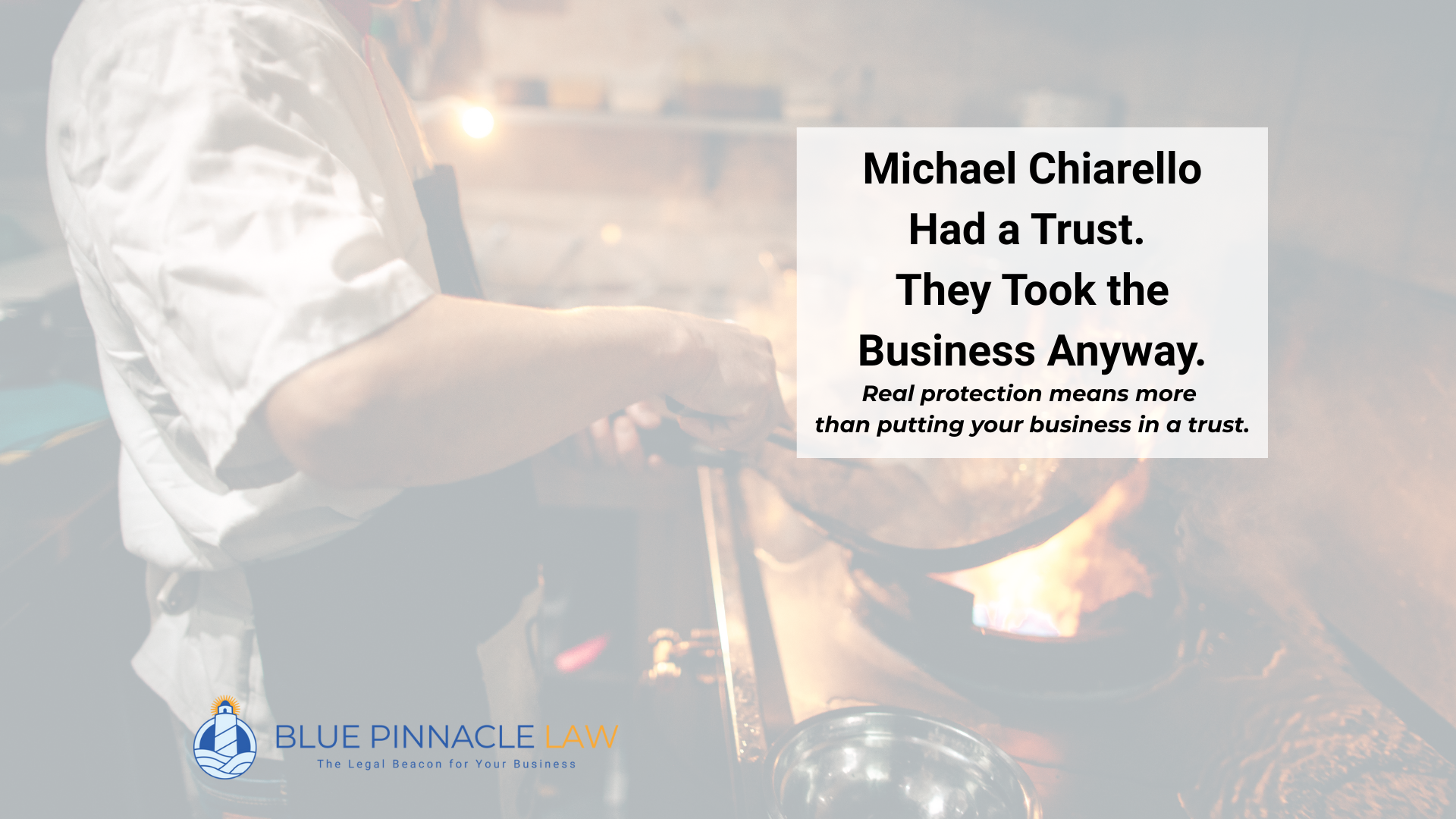What Happened to Michael Chiarello’s Business After He Died?

When celebrity chef and Food Network star Michael Chiarello passed away, he left behind a culinary empire—and a trust. But despite his planning, his restaurant group ended up at the center of a legal battle.
According to reports, outside investors quickly seized control of the company after his death, blindsiding his family and raising serious questions about how a trust that was supposed to protect his legacy could allow something like this to happen.
The answer is simple: he had an estate plan, but not a succession plan.
Business Owners: This Is the Blind Spot
Most business owners know they need to plan for death or incapacity. Many even create a trust and assign their ownership interest to it.
But that’s not the same as succession planning.
Here’s what often gets missed:
- What happens if you’re suddenly gone for 30 days? Or permanently?
- Who runs the business, and under what authority?
- How is value determined for a sale or buyout?
- What if your heirs and business partners don’t agree?
- How do you prevent opportunistic investors or team members from seizing control?
When these questions go unanswered, even a funded trust can’t stop the chaos.
What Happened in Chiarello’s Case
Chiarello had a trust that owned the business—but it lacked legal guardrails around operations, leadership, or transfer protocols. After his passing, his investors allegedly took advantage of the lack of internal structure to orchestrate a hostile takeover.
His family has since filed suit, claiming coercion, misrepresentation, and a total disregard for his intentions. It’s a painful, public example of what happens when estate planning stops short of protecting the business itself.
What Real Protection Looks Like
A succession plan is not just about ownership—it’s about control, continuity, and communication.
Here’s what we build for clients during Phase Two of our estate planning process:
- A clear transition plan outlining roles and authority
- Guidelines for decision-making and voting power
- Methods for business valuation and buyouts
- Operating Agreement updates to reflect your goals
- Optional trusts or holding companies to separate control from inheritance
- Emergency plans for incapacity, not just death
This isn’t “extra” planning—it’s essential if you want your business to stay strong without you.
Start With a Conversation
You don’t have to solve all of this overnight. But if you’re a business owner and you’ve already created a trust—or you’re thinking about it—let’s talk.
We’ll start with a 15-minute call to see if strategic succession planning should be the next step in protecting what you’ve built.
It’s the calm, no-pressure conversation most business owners never get to have—until it’s too late.
--
This article is a service of Blue Pinnacle Law, PC. We don’t just draft documents; we ensure you make informed and empowered decisions about life and death, for yourself and the people you love. That's why we offer a Lighthouse Legacy Planning Session, during which you will get more financially organized than you’ve ever been before and make all the best choices for the people you love. You can begin by emailing our office today to schedule a Lighthouse Legacy Planning Session at rosanna@bluepinnaclelaw.com.
The content is believed to be providing accurate information. This material was created for educational and informational purposes only and is not intended as ERISA, tax, legal, or investment advice. If you are seeking legal advice specific to your needs, such advice services must be obtained on your own separate from this educational material.





